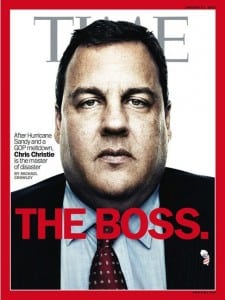
Call it “Bridgegate” or “Bridgeghazi” or whatever you want, but New Jersey Gov. Chris Christie is fully immersed in a messy scandal.
In case you missed it, emails have surfaced that link Christie’s senior staff to a successful effort to clog up traffic around the George Washington Bridge to punish Fort Lee mayor Mark Sokolich for not endorsing Christie in his recent reelection.
Christie maintains that he had nothing to do with the traffic jam, and the blame has been shifted to Bridget Anne Kelly, his now former deputy chief of staff. Still, the leaked emails beg the question of what Christie may have actually known.
Today, the governor held a press conference. He apologized for the incident and said he is “sick over this” and “embarrassed.” Nevertheless, he emphatically denies any personal knowledge or involvement.
So in the communications context, the question is how Christie performed in a crisis-response press conference. There are specific rules and approaches that should be followed. Did he do everything he could to defuse the situation? Did he come off as believable and non defensive?
We asked Bob Chlopak, founding partner of DC crisis firm CLS, for his take. “It is too early to assess whether this brewing scandal will be a roadblock to Gov. Christie’s climb to the White House,” he said. Still, Chlopak indicated that Christie did what he needed to do today, he answered every question and didn't attempt to spin his way out. Assuming nothing surfaces that points to him being dishonest, he probably helped himself. However, if that's not the case, and it is revealed Christie was hiding something then "he's dead [politically]," Chlopak said.
What's more, Chlopak pointed out two other takeaways to consider from the exhaustively long press conference that could hurt him in the long run.
"There's no answer to the question of why this happened," Chlopak said. "Christie today said he wasn't even sure if he could pick the mayor of Fort Lee out of a lineup and he wasn't on any sort of list that he knew of. So why is it that some of the people closest to the governor chose to engage in such an act of retribution for somebody who seemed like a nobody? And that question will continue to be asked and there's no answer for it."
He went on to say, "Somewhat related to that is the issue of culture. And that question actually did get asked at the press conference today. I think when leaders of large organizations experience problems outside of the main office, I don't think people hold the chief executive or governor accountable. But here, you have two people very close to the governor—his deputy chief of staff who was with him through two campaigns and a longtime friend who he put in a position of authority at the Port Authority—so questions are going to be asked about what this says about the culture, temperament and tolerance of a Christie administration."
These questions (and others) could loom large over the next weeks, months or even years as Christie looks to shape his future political career. In the meantime, Chlopak said, the governor "must recognize the significance of the test he now faces, take full responsibility and demand that the chips fall wherever the facts lead.”
Follow Caysey Welton: @CayseyW

2 responses to “Lessons From Chris Christie’s Career-Threatening Crisis”